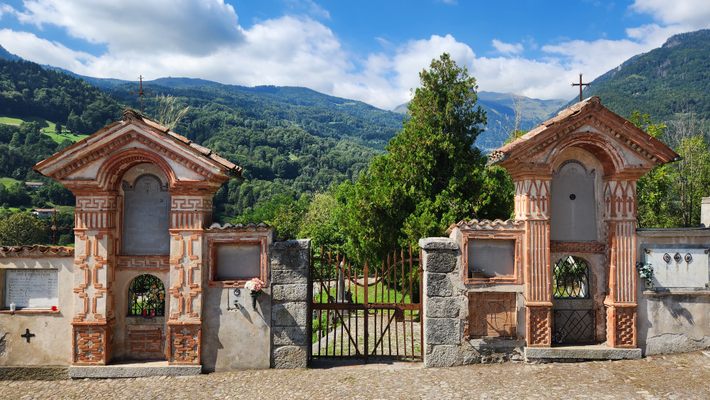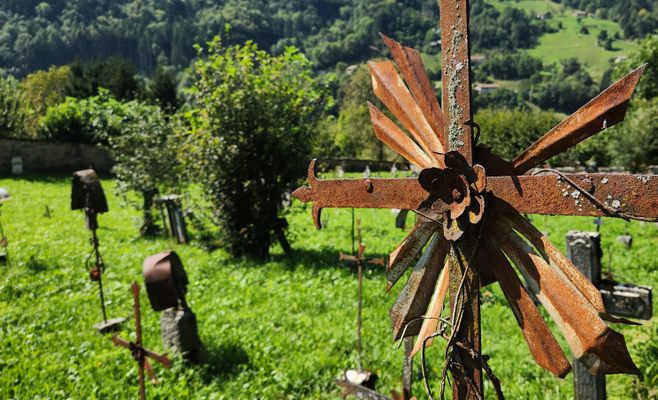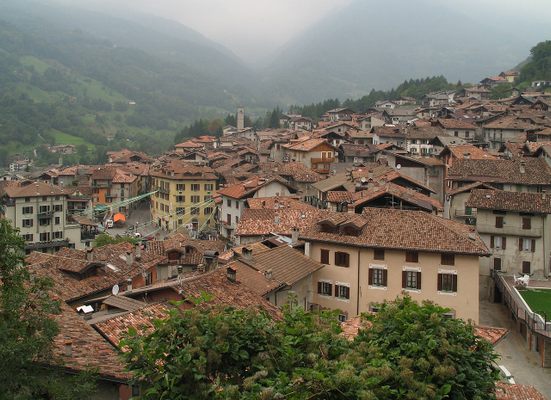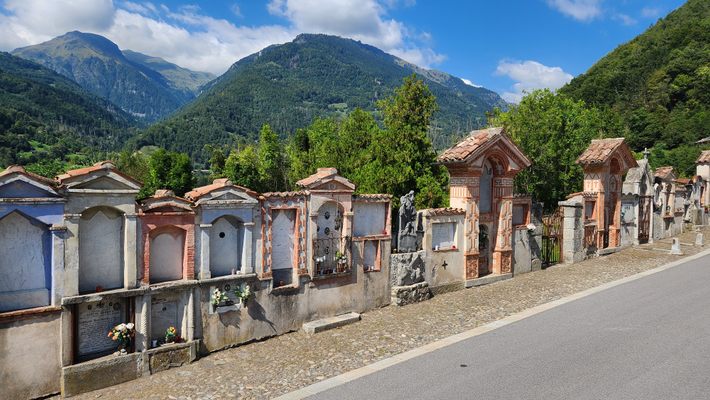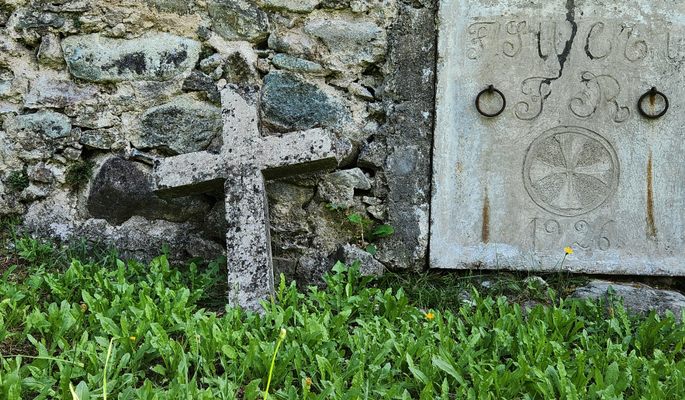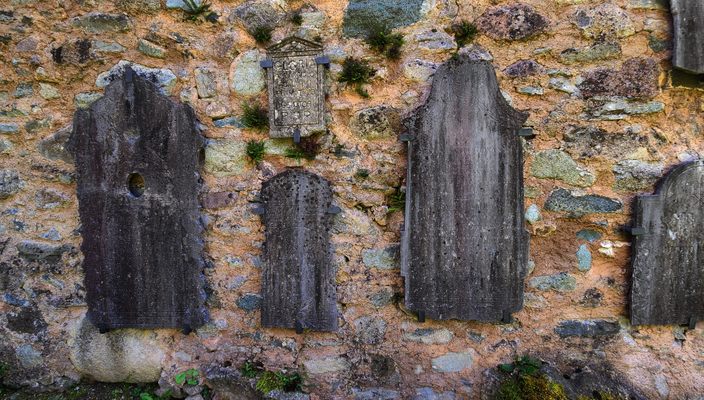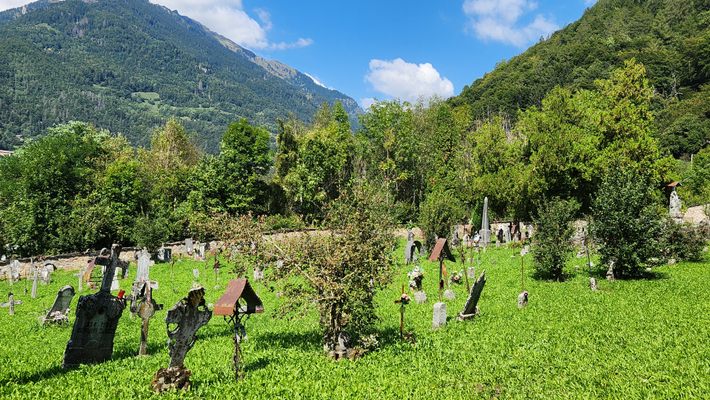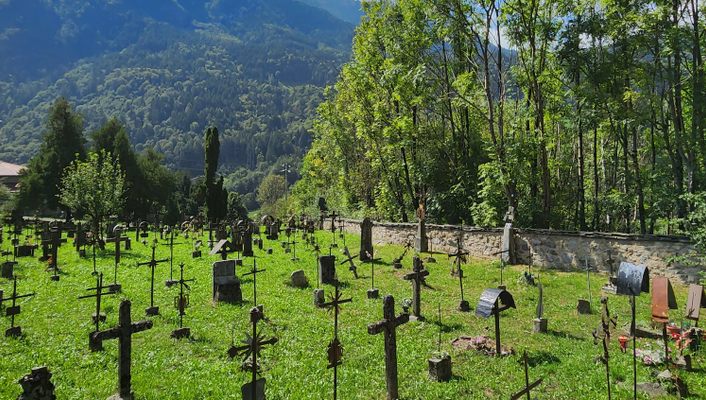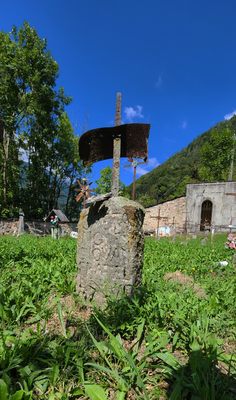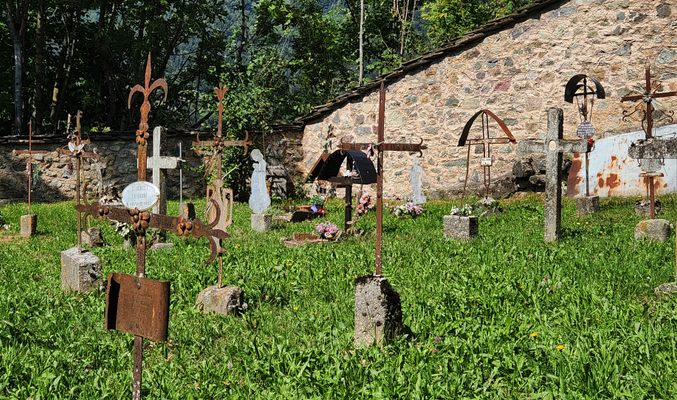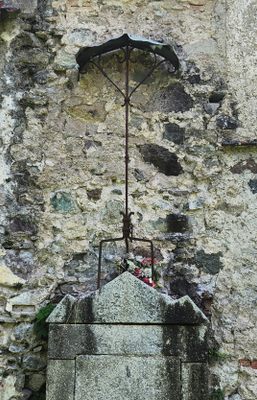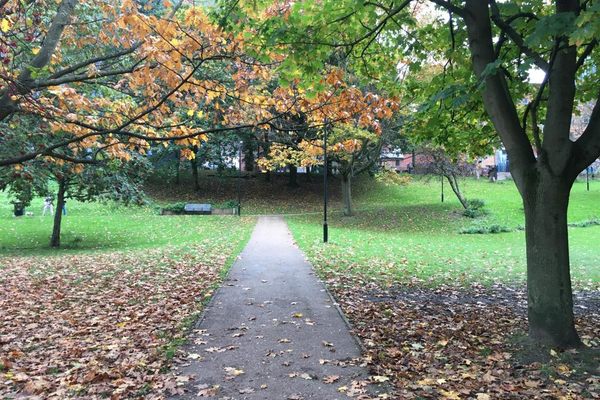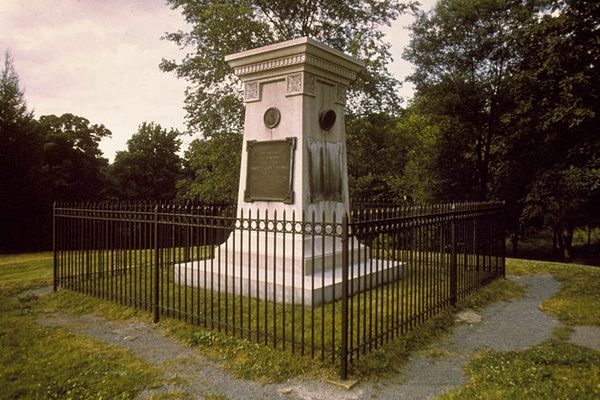About
Bagolino is a small village perched on the steep slopes of Val Sabbia. The history of this village goes back to the Ancient Roman Empire when it conquered these territories around the year 16 CE. There is evidence suggesting that the Romans established an outpost for changing horses along Val Sabbia. In due time, the settlement grew into a hamlet, and so an early iteration of Bagolino was born. Much more documented is the role the village played throughout the Middle Ages.
By and large, the village still retains a medieval feel with narrow, winding roads flanked by rows of old houses attached to one another, cobblestone staircases cutting through the historical center, and quaint little squares with timeworn fountains. The high concentration of houses and communal urban space suggests that the land is precious in these mountains. Yet, space must be made for the dead as well as for the living.
A cemetery dating back to the Middle Ages was once located by the main church (Chiesa di San Rocco), but Napoleon, through the Edict of Saint Claude in 1804, forbade the burial of the dead within the confines of populated areas due to hygiene concerns. And so, the Old Cemetery was built on the outskirts of the village. Mirroring the row of old houses in the historical center of Bagolino, the Old Cemetery is characterized by a row of chapels along the road. These disparate chapels were commissioned by local affluent families, and they exhibit a wide array of architectural styles.
Behind the row of chapels is the burial ground for the less affluent. Here are hundreds of tombs, most of which are well over a century old. Of note are ancient wrought iron crosses that testify to the mastery of local artisans.
Related Tags
Know Before You Go
The family chapels along the road can be visited any time, any day. To gain access to the burial ground behind the chapels, you may have to unbolt the wrought iron gate.
Flavors of Italy: Roman Carbonara, Florentine Steak & Venetian Cocktails
Savor local cuisine across Rome, Florence & Venice.
Book NowCommunity Contributors
Added By
Published
October 3, 2023
